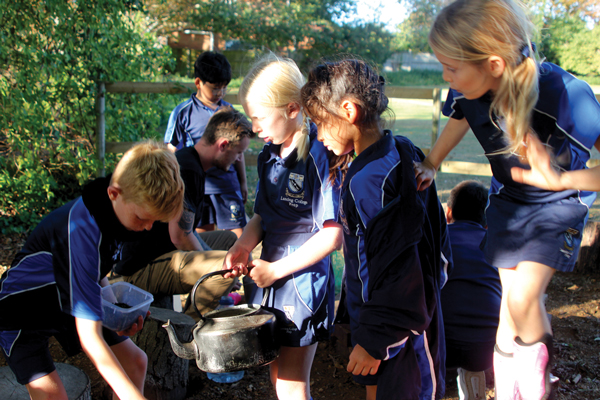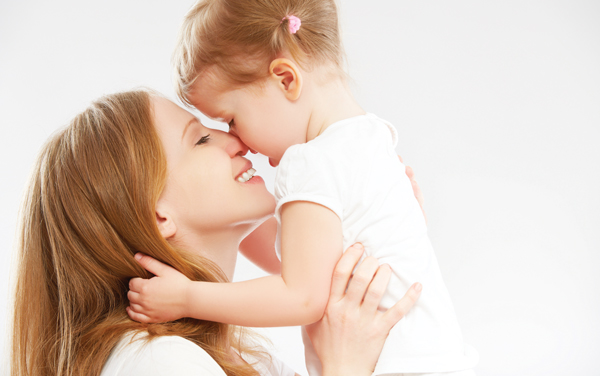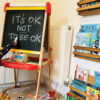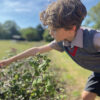
by John D. Bieber
Author of Am I Loved? The Most Asked Question Of All Time
Aspirations of love and of being loved are the constant waking schemes and sleeping dreams of all humankind. Indeed, acting like a barometer for our mental health, the satisfaction or otherwise of our need to be loved is paramount for our wellbeing. Exploring the undeniable fact that as the world’s only emotional beings, it is truly astonishing that we function through emotions that we do not remotely understand or control. Our emotions exist not to benefit us but to safeguard our genes, protecting the life within us. We spend our lives intent on surviving when fulfilment comes from loving and being loved. Nature’s protections serve to liberate us yet we allow them to inhibit our lives without realising that the majority of our many emotional problems are solvable simply by a proper understanding of the human condition. The most asked question of all time is: Am I Loved?
Why do we breathe and why do we need to eat and drink? That is how we are made. We couldn’t survive in any other way. And that is also the case with love.
As human beings we have two special gifts from nature not given so generously to the rest of creation: our emotions and our capacity to love. They stand at the very core of our survival which makes our subject all the more worthwhile, indeed almost tender because as we consider love we are dealing with fallible, loveable, needy and vulnerable human beings just like you and just like me. We are all irrevocably the same.
Remember that love is nature’s gift to us and it will be no surprise that the pursuit of love is a passion, a game, in which practically every individual will participate , if not on a daily basis, then at least at some stage in their lives. Loving is a huge human need but nature has ordained that being loved is by far the greatest human need of all. We never tire of trying to satisfy it.
Love is the only voluntary emotion we have; that is one we can choose to give or withhold. Love looks out for the dangers we must avoid to survive. Love is another pair of eyes and ears, a source of care, a wise and experienced hand to avoid risk, and love is a source of happiness too, the most necessary gift to humankind. When you are loved you find protection and fulfilment in the emotions of others.
To put it simply, love is our predominant desire and our predominant need. Reducing life to its essential parts, stripping out the hosts of feelings that confront and confuse us every minute of every day, love is the single greatest force that influences and propels the course of all human experience. It is love that truly distinguishes us from other animals; it is love that makes life possible; indeed it is love that makes life liveable and worthwhile.
And what is love? Love is like an elephant: you know it when you see it, even, or especially, when it is gone. But can love be defined? I think it can. In fact it comes down to something very simple, namely, the gauging and supply of another’s needs. That is all it is.
It is a binding that contains us all, the glue that holds us together, the care, the security we crave for, the supply of our personal needs.
We give love and we receive it. But really we trade it. We wish to love but, above all, we wish to be loved and in many instances that single desire will be greater than our personal desire to give love.
Being loved, feeling loved, is the real and actual key to the age-old question: what makes people happy? As Steven Pinker writes in ‘How the Mind Works’, “The study of happiness often sounds like a sermon for traditional values. The numbers show it is not the rich, privileged, robust or good-looking who are happy: it is those who have spouses, friends, religion and challenging work.” In short, all individuals whose relationships endow them with the potential to love and be loved.
Aspirations of love and of being loved are the constant waking schemes and sleeping dreams of all humankind. Indeed, acting like a barometer for our mental health, the satisfaction or otherwise of our need to be loved is paramount for our wellbeing.
We give love to find love. When we feel loved, we feel both protection and fulfilment in the emotions of others. That need, that essential dependence on others when we consider ourselves strong and self-sufficient, exists whether or not we are aware of it, can speak of love, have difficulty in finding it or spend our lives in search of it. All of us need to be loved, even when we persuade ourselves that we don’t or appear to be unlovable.
Being loved, feeling loved, is the greatest prize of our existence. It is the only way we can satisfy our need to be happy and whole and at one with our nature, crucially bringing added security to our genes through the loving concern of others.
And so the sight or sound of another human being becomes the most physically arousing thing that a human being can see or hear. Such is the potential of love, going not just to our heart but to the very heart of our being, the constant need for which provides us with our tenderest feelings, our romantic spirits, our passionate ways and a lifelong spur to go on always propelled by our great need to be loved.
And what of our need to be loved? It’s really just a call for someone to love us.

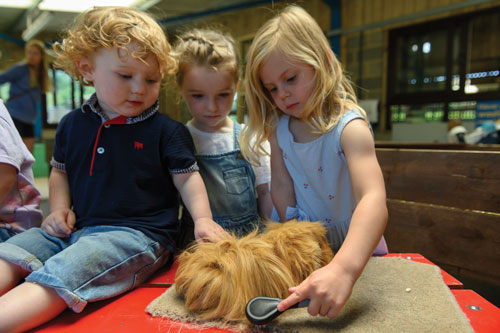
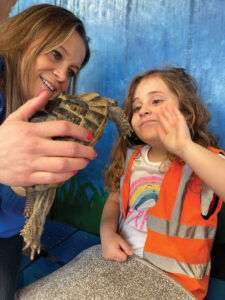 Animals also provide children with lessons about life (reproduction, birth, illnesses, accidents, death, and bereavement). Children have the opportunity to see lambs being born and eggs hatching. Animals provide knowledge in biology. When children spend time around the different animals they begin to understand basic biology and how that translates between animal species. Activities like grooming animals and feeding them, understanding what they eat and how food is digested, develops children’s knowledge and of course, children love discussing poo!
Animals also provide children with lessons about life (reproduction, birth, illnesses, accidents, death, and bereavement). Children have the opportunity to see lambs being born and eggs hatching. Animals provide knowledge in biology. When children spend time around the different animals they begin to understand basic biology and how that translates between animal species. Activities like grooming animals and feeding them, understanding what they eat and how food is digested, develops children’s knowledge and of course, children love discussing poo!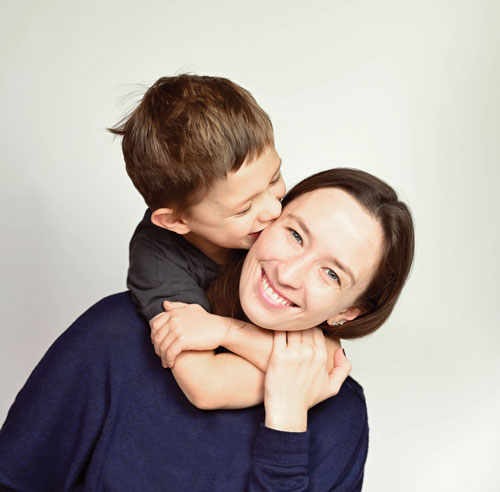

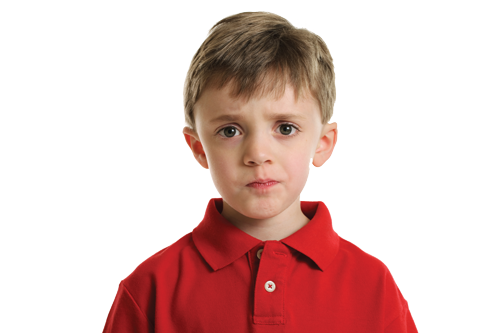

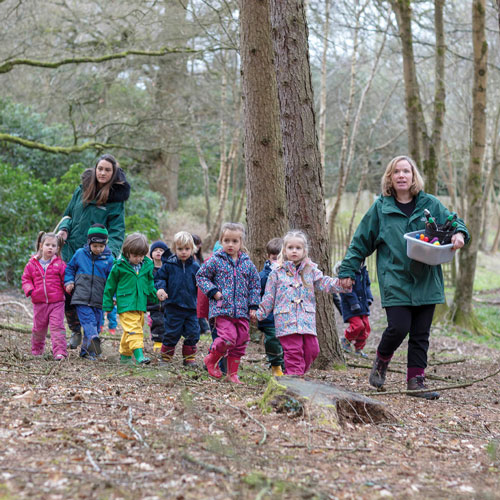
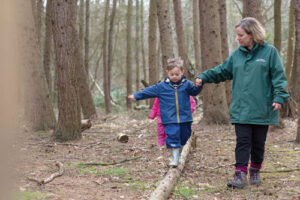 Helping schools to enhance their outdoor learning offering and ensure children can enjoy meaningful and effective lessons, the Forest School Association offers a national accreditation that schools can apply for to deliver both structured and unstructured outdoor sessions. At our school, we have a long-established Forest School programme, led by our own Forest School accredited teachers and trainers, who are able to deliver valuable outdoor sessions for children from the age of two upwards.
Helping schools to enhance their outdoor learning offering and ensure children can enjoy meaningful and effective lessons, the Forest School Association offers a national accreditation that schools can apply for to deliver both structured and unstructured outdoor sessions. At our school, we have a long-established Forest School programme, led by our own Forest School accredited teachers and trainers, who are able to deliver valuable outdoor sessions for children from the age of two upwards.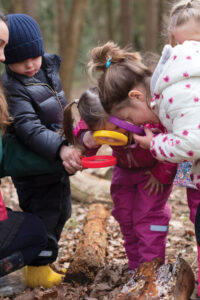 r experience, we have found that outdoor learning is particularly beneficial for younger children. They are given the space to be active and enjoy being noisy and messy, while engaging in play-based learning and exploration. With activities based on small, achievable steps, spending time outside helps to increase self-confidence and independence in the early years. Additional benefits of outdoor learning for younger children include improving their focus and attention, while physically helping to improve their balance, co-ordination and fine motor skills.
r experience, we have found that outdoor learning is particularly beneficial for younger children. They are given the space to be active and enjoy being noisy and messy, while engaging in play-based learning and exploration. With activities based on small, achievable steps, spending time outside helps to increase self-confidence and independence in the early years. Additional benefits of outdoor learning for younger children include improving their focus and attention, while physically helping to improve their balance, co-ordination and fine motor skills.

